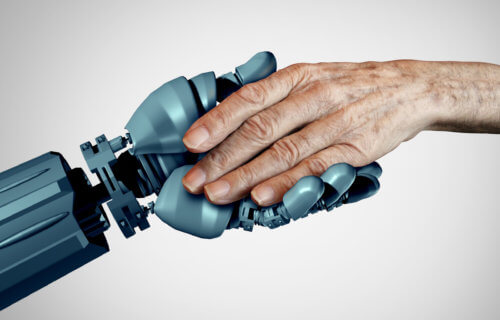SEATTLE, Wash. — When most people hear the term “sex robot,” their first thought probably centers on a device built to satisfy the desires of young adults. A professor from the University of Washington School of Medicine says one group is constantly overlooked when it comes to their sexual and emotional needs. That group is senior citizens and a new study suggests robots could be the answer in providing a growing population of aging and disabled adults with both love and companionship.
Nancy Jecker is a professor of bioethics and humanities examining the social isolation faced by people over 65. The researcher contends that robotics present an opportunity to offer aging communities, especially in the United States, a chance to receive sexual gratification despite stigmas surrounding sex and the elderly.
“We apply ageist attitudes and negative stereotypes to older adults. We assume they’re too old to indulge in sex and think that older adults having interest in sex is weird or dirty,” Jecker says in a university release. “We have similar attitudes toward people with disabilities, where most research has focused on protecting them from able-bodied sexual predators instead of considering their sexual needs and desires as human beings.”
Can a robot really be your friend and lover?
Jecker has been studying aging populations for decades, including how seniors are cared for in their later years. When robots began to become a common sight, taking on basic tasks in society, the professor saw an opportunity to examine how these machines could help with elder care. Jecker notes there has also been a decline in the number of human workers assisting older adults and the disabled.
“Designing and marketing sex robots for older, disabled people would represent a sea change from current practice. The reason to do it is to support human dignity and to take seriously the claims of those whose sexuality is diminished by disability or isolation. Society needs to make reasonable efforts to help them,” the professor explains.
Jecker’s report argues that western societies have a narrow view of sex and assume seniors have lost this desire over time. She adds that sexual function is a basic human value that isn’t just all about physical pleasure. There’s also an aspect of emotional attachment the study finds is also essential for the wellbeing of lonely seniors.
“There’s a whole spectrum of human desires. It’s limiting to think only of sex bots or only of friend bots. Some older people want a companion that can provide both social interaction and physical affection,” the University of Washington professor says.
Lessons in love from Japan
The report points to 43 percent of Americans over 60 report feeling lonely. These results gathered by the National Academies of Sciences, Engineering, and Medicine comes from February 2020 — weeks before the coronavirus pandemic made social isolation even worse for many people, including seniors.
Jecker’s analysis finds, even in wealthy nations, an increasing number of people over 50 are living alone. This can eventually put a strain on their health and the wellbeing of health care professionals called to assist them.
The professor argues that a culture like Japan represents a good example for western nations to follow when it comes to living with robots. She points to the Shinto belief that both animate and inanimate objects can possess a spirit.
“They are much more open to the possibility of pet robots and friend robots. They’ve been at the forefront of not just the technology but the humanities questions of ‘How should we design these robots? What sort of social relationships would you want to have with them?’ They don’t share the Western roboticists’ worry that robots are mechanical empty things that we can’t relate to,” Jecker explains.
The professor urges robot designers in the U.S. and other nations to focus on what their creations could mean to an older user, not just its basic function.
The study appears in the Journal of Medical Ethics.
